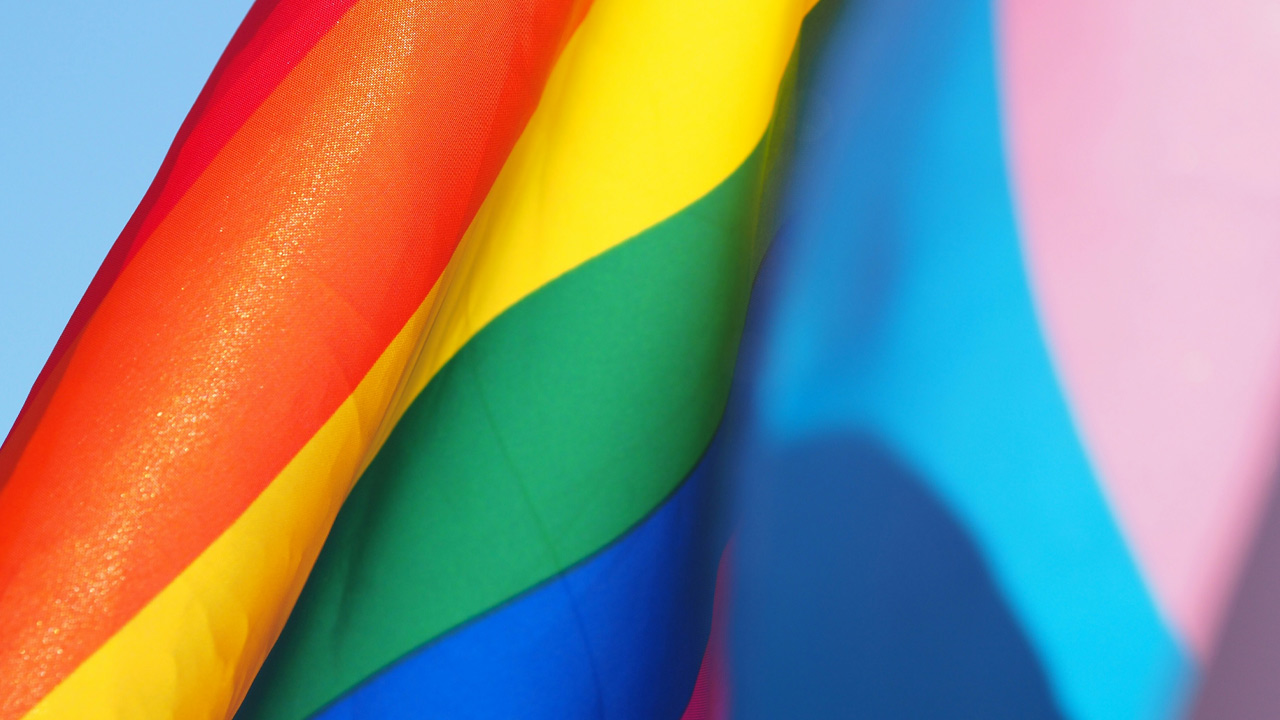
We're celebrating Pride Month! We've gathered a list of some modules available in the School of Histories, Languages, and Cultures which cover LGBTQI+ issues, or could relate to them. Programme details and modules listed are illustrative only and subject to change.
Politics
The modules below explore gender identities, sexual politics, and intersectionality, providing students with critical insights into contemporary gender, sexual rights, and global political impacts.
Foundations in Politics (Year 1)
Engages with political thinkers like bell hooks on gender and intersectionality.
Gender and Feminist Politics: Core Concepts and Theories (Year 2)
Explores modern gender politics. It deals with intersecting identities and current theories of 'woman,' and uses case studies on gender violence and reproductive rights.
Contemporary Sexual Politics (Year 2)
Examines sexual politics which includes moral panic, sex work, reproductive technologies, and sexual rights. It deals with intersectional feminist and queer scholarship, activist campaigns, and policy approaches.
Gender and Global Politics (Year 2)
Provides views on global politics, focussing on conflict, peace, and the impact on marginalized groups.
History
Many History modules explore LGBTQI+ issues, examining gender, sexuality, and social change across different eras and regions.
Modern Britain: Democracy, War, and Modernity (Year 1)
An introduction to modern British history, exploring themes like social change which can include the evolution of LGBTQI+ rights and recognition.
The Politics of Gender: Male and Female Rule in Early Modern Europe (Year 2)
Discusses gender perceptions related to political power, incorporating historiographies on femininity and masculinity.
Culture and Belief in Late Medieval England (Year 2)
Examines popular beliefs about gender and sex, heresy, and deviance, which can encompass historical attitudes towards LGBTQI+.
Rights and Resistance: Gender, Sexuality, and the Law in Modern Britain (Year 3)
Focuses on the relationships between law, social change, and attitudes towards genders and sexualities, covering topics like the criminalization and decriminalization of male homosexuality, and transgender rights.
Behind the Battlefields: Culture and Society in Britain and Germany, 1914-1918 (Year 3)
Explores the impact of the First World War on gender roles and sexual morality.
Irish Studies
The modules below offer critical insights into how Irish literature and culture have changed and could provide LGBTQI+ narratives and debates.
Ways of Reading (Year 1)
Explores critical methodologies in literature, addressing issues of race, gender, and sexuality in relation to politics, society, and culture.
Modernist Magazines: History, Fiction and the Literary Periodical (Year 2)
Examines late 19th and early 20th-century literary magazines, exploring topics like sexuality, censorship, and state interference.
Banned: Fiction, Sex and the Limits of Decency (Year 2)
Investigates the history of literary censorship, focusing on issues of decency, morality, and sexuality from 1850s France to postwar Britain and Ireland.
Languages, Cultures, and Film
These second-year modules explore LGBTQI+ themes through the lenses of cinema, literature, and societal impacts.
Projecting China: An Introduction to Chinese Cinema
Examines Chinese cinema, focusing on gender and sexuality, censorship, and the projection of cultural identities
Weimar Film and Literature: The City and Modernity
Analyses cultural representations in the Weimar Republic, highlighting changing ideas about class and gender. It includes studying works like "The Blue Angel," which engage with themes of sexuality and modernity.
Propaganda and Censorship
Investigates controversial films to understand the interplay between film, political authority, and public morality. This module addresses how films from different regimes handle censorship and sex.
Comics and Graphic Novels: Memory and Transcultural Mobility
Explores how comics represent marginalized histories and challenge systems of oppression. It shows how comics record forgotten LGBTQI+ histories. They also help self-representation and transcultural belonging.
Archaeology, Classics and Egyptology
These second-year modules explore ancient Greek and Roman views on sexuality, love, and friendship. They can provide insights into how these societies understood and depicted same-sex relationships.
Warfare, Politics, and Society in the Greek World, 510-323 B.C.
Explores various aspects of Greek society and culture, including sexuality and the role of same-sex relationships, offering insights into ancient attitudes.
Love and Friendship in Antiquity
Examines Greek and Roman sources on erotic love, both heterosexual and same-sex, as well as non-erotic friendships. Key texts include works by Sappho, Plato, and Ovid, providing a comprehensive view of ancient perspectives on love and sexuality.
Thanks for reading, and we hope you found it interesting for Pride Month!